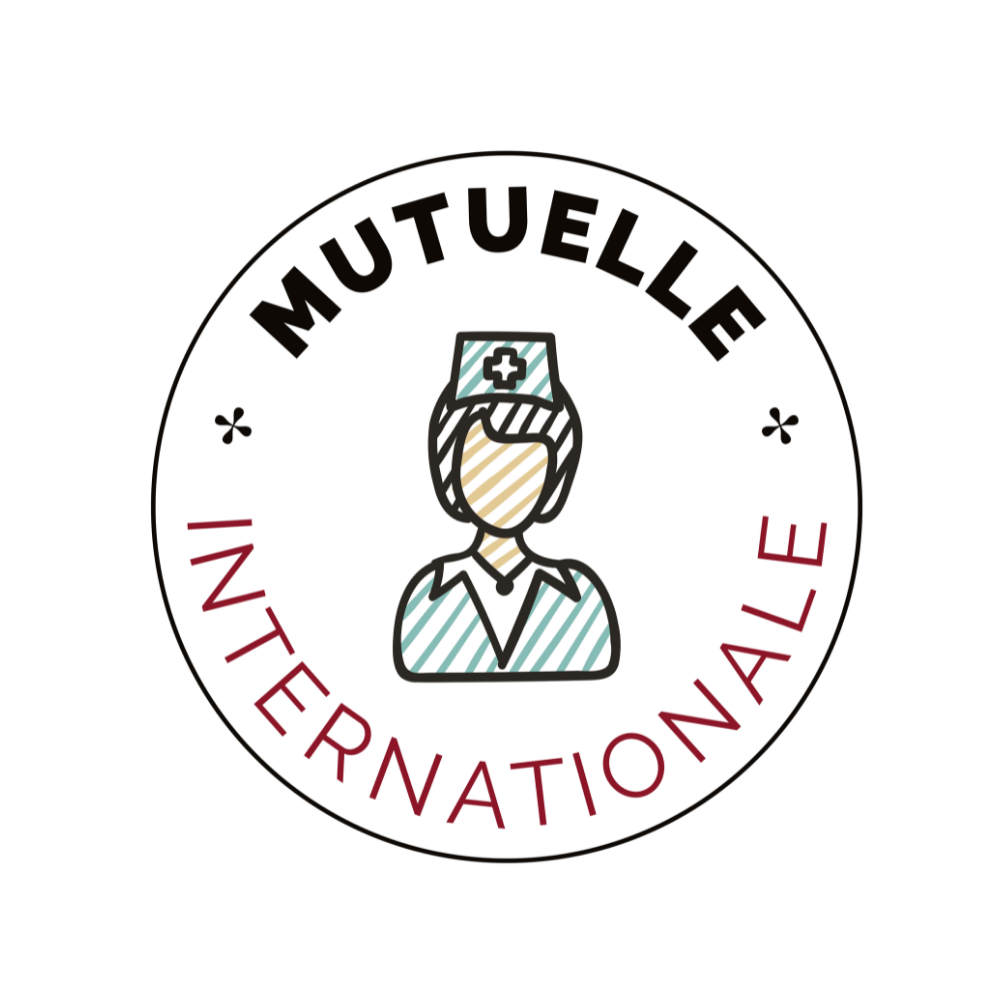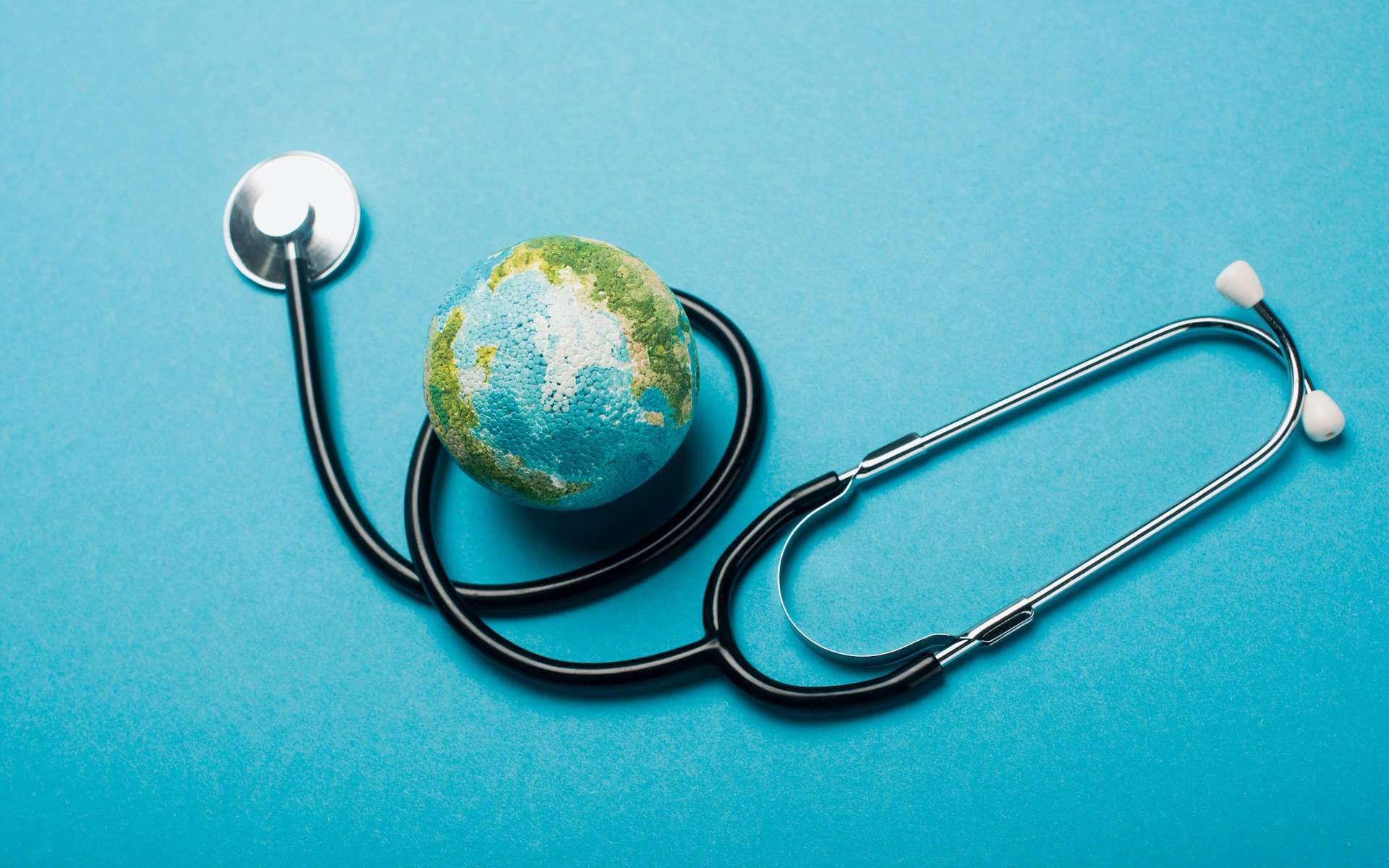|
IN BRIEF
|
In a world where health inequalities persist, international medical aid asserts itself as an essential pillar in the fight against communicable diseases and improving access to care for the most vulnerable. Every year, millions of people suffer from the absence of essential health services, and this is where humanitarian intervention takes on its full meaning. By providing concrete solutions on the ground, this aid not only helps save lives, but also strengthens local health systems and promotes universal health coverage. Thus, understanding the impact of international medical aid on the global health is crucial to understanding the global challenges facing our society and to mobilizing collective actions in favor of health justice.
L’international medical aid plays a crucial role in promoting global health, especially in the most vulnerable regions. This article examines the benefits and the disadvantages of this aid, in order to better understand its impact on health systems and on the life of local communities. Through this analysis, we will explore how these medical interventions can save lives while highlighting some of the challenges encountered on the ground.
Benefits
Saving lives
One of the main advantages of international medical aid is its ability to save lives. In areas marked by health crises, such as epidemics or natural disasters, the rapid intervention of NGOs and humanitarian organizations can make a huge difference. For example, NGOs like ALIMA provide care in emergency contexts, thus making it possible to treat serious illnesses and redress critical health situations, which is vital for affected communities.
Access to health care for all
This aid also aims to combat inequalities in access to care. Millions of people, especially in low-income countries, do not have access to an adequate health system. International intervention helps ensure that even the most isolated populations benefit from essential health services. Support from the CARE association, for example, helps to strengthen access to care for the most disadvantaged groups.
Strengthening local health systems
Beyond emergency aid, certain initiatives focus on capacity building local. This includes training medical staff, improving health infrastructure and developing sustainable health solutions. This type of support is essential in the long term to help communities become self-sufficient and manage their own health systems.

Insurance for expatriates: the importance of flexibility in your choices
In a constantly changing world, and with the resumption of expatriation expected in 2025 after the slowdown caused by the Covid-19 pandemic, the role of expatriate insurance has never been more crucial. Companies must now ensure that their employees, spread…
Disadvantages
Dependence on external aid
One of the major disadvantages of international medical aid is the dependence that she can create. Recipient countries can become too dependent on international aid, neglecting the development of their own health systems. This can hinder self-sufficiency and delay the implementation of sustainable solutions on site.
Quality and adequacy of care
It also happens that international assistance is not always in line with the local needs. Sometimes, aid programs do not take into account the cultural specificities, needs or priorities of communities, which can lead to inappropriate interventions or ineffective. It is essential that organizations adapt their efforts to local realities to be truly effective.
Risks for healthcare workers
Finally, healthcare workers who operate in the field may be exposed to considerable risks. Due to armed conflicts or serious health crises, these health professionals may encounter dangerous conditions. The security of humanitarian aid is therefore a significant point which must be taken into account in planning interventions.
In short, international medical aid plays a vital role in the fight to improve global health, but it must be careful and thoughtful. For greater impact, it is crucial to defend equitable access to health for all, taking into account local issues and establishing solid partnerships with existing health systems. To find out more about the issues ofmedical aid, consult reliable sources such as the ministry of health Or the CARE association.
International medical assistance plays a crucial role in protecting and improving the global health. Through strategic programs and targeted interventions, it aims to respond to the health needs vulnerable populations, to fight against communicable diseases and guarantee access to essential care. This article explores the different facets of international medical aid and its immense impact on overall health.

Mondial Assistance reaches 1.5 billion euros in turnover in 2007 and prepares for future growth
In 2007, Mondial Assistance reached a historic milestone by reaching €1.5 billion in revenue. This milestone marked a turning point in the company’s expansion, and the company was already planning its future growth paths. In a sector where innovation is…
Contemporary challenges in global health
The challenges facing global health are many and varied. Lack of access to healthcare is one of the leading causes of death worldwide. According to the World Health Organization (WHO), millions of people suffer without sufficient access to essential health services. International medical aid comes to the rescue of these populations by providing resources and skills needed to deal with these health crises.

Choosing the right mutual insurance for expatriates in Asia
Embarking on an expat life in Asia is an exhilarating adventure, filled with cultural discoveries and professional opportunities. However, a crucial question quickly arises: how can you ensure adequate health coverage that protects both your well-being and your budget? Whether…
The role of NGOs and humanitarian organizations
THE NGO as ALIMA and CARE are on the front line to provide medical support in conflict zones and emergency situations. Their mission is to provide medical care, train local health personnel and promote innovative methods of intervention. For example, ALIMA saves lives through close collaboration with local NGOs, thus making it possible to adapt care to the specific realities of each community.

Boursorama Banque and Revolut: financial services duel in 2025
Boursorama Banque and Revolut are emerging as essential pillars of modern financial services. While Boursorama Banque perpetuates its heritage of reliability and French banking tradition, Revolut represents the breakthrough of a bold British neobank with innovative features. Their duel promises…
Importance of transparency and standards
Another essential dimension of international medical assistance is the establishment of international standards regarding the right to health. Protection of physical and mental health is essential, especially for migrant workers who must have access to the necessary care. Respect for international health standards is imperative to guarantee universal health coverage and to provide responses adapted to different contexts.

Discover LovExpat: the first dating app dedicated to French expats
Expat life is a unique adventure, marked by the challenges of adapting to a new culture, creating new social networks, and sometimes, finding a romantic connection. LovExpat, the app born from the vision of two French sisters, addresses this need.…
Towards universal health coverage
It is urgent to work for the universal health coverage, which aims to ensure that all individuals, without exception, can access the necessary care. According to the data, the proportion of the population without access to these services has decreased, but continued efforts are needed for this trend to improve. Initiatives such as those promoted by the international mutual health insurance, for example, show how access to insurance programs can help make care more accessible.

AgoraExpat – Your Reliable Ally for Expatriate Medical Coverage
Living in a foreign country is an enriching adventure, but it also comes with unique challenges, particularly when it comes to healthcare. Navigating a new healthcare system can be complex and worrying. Therefore, the need for reliable and comprehensive medical…
The lasting impact of international medical aid
The need for sustained commitment to international medical aid cannot be underestimated. Efforts to improve the overall health continue to evolve, revealing successes but also persistent challenges. Implementing well-thought-out strategies not only addresses immediate needs, but also builds resilient health systems for the future. Access to health is a fundamental right for all, and international solidarity remains an essential lever to support communities in their quest for a healthier life.

The emergence of international medical aid operations constitutes a crucial issue for addressing the challenges of global health. These interventions aim to provide care in areas affected by health crises or conflicts. Their impact affects not only individuals, but also the health systems and social structures of beneficiary countries. Understanding this impact is essential to optimizing these efforts and ensuring a healthier future for all.
Health system challenges
In many parts of the world, health systems are fragile and often overloaded. L’international medical aid plays a fundamental role in providing a rapid response to health crises. However, it is not just about treating the symptoms, but also about strengthening these systems. Indeed, without a strategy that includes the training of local health professionals and the improvement of infrastructure, these interventions cannot guarantee lasting solutions.
Access to care and social justice
Lack of access to healthcare remains one of the major challenges to global health, causing the deaths of millions of people each year. Initiatives such as those of ALIMA show that it is possible to fight against these inequalities. International medical aid must therefore be seen not only as a one-off response, but also as an avenue to defend the right to health for all. Every action taken must aim to reduce this gap, with a focus on vulnerable populations, including migrant workers and their families.
Health standards and rights
It is essential that the international standards on the right to health are respected during each aid operation. Aid workers must be trained to meet these standards, ensuring that the care provided is appropriate and equitable. This also includes particular attention to patients’ rights, particularly in emergency contexts. To find out more about these issues, you can consult the website Cairn.
The future of international medical aid
At the dawn of new health crises, the French global health strategy for 2023-2027 represents a proactive response to meet these challenges. It is imperative to adopt a collaborative and multidisciplinary approach to address rapid changes in health needs around the world. By strengthening partnerships with local NGOs and supporting initiatives to universal health coverage, we can hope to make significant progress.
Understanding the impact of international medical aid on global health is a step toward a healthier future. By joining forces, sharing resources and respecting health rights standards, we can reduce inequalities and ensure that everyone has access to the care they need. To learn more about global health, you can read this article on la%20sant%C3%A9%20globale%20ou%20d%C3%A9couvrir%20les%20best health systems.
| Axis of analysis | Impact on global health |
| Access to care | Helps save lives by providing emergency care. |
| Education and awareness | Increases knowledge about disease prevention. |
| Health inequalities | Reduces disparities in access to care between countries. |
| International collaboration | Promotes strong partnerships between NGOs and governments. |
| Preparedness for health crises | Strengthens health systems to respond to emergencies. |
| Research and innovation | Stimulates the development of new treatments and vaccines. |
| Sustainability | Encourages sustainable practices for long-term impact. |

Access to healthcare is a fundamental right, yet every year millions of people around the world go without it. International medical aid operations play a crucial role in the fight against these inequalities. Their impact is felt in collective efforts to ensure that every individual, regardless of their geographic origin, can benefit from adequate care and access to essential health services.
On the positive side, these initiatives offer a second chance at life to those suffering from communicable diseases and serious infections. For example, in areas affected by humanitarian crises, NGOs such as ALIMA and CARE work tirelessly to provide life-saving care. Their commitment demonstrates the need for concerted international action, incorporating standards that uphold the right to physical and mental health for all. It is imperative to recognize that international medical aid is not limited to treating the symptoms of illnesses, but also seeks to build sustainable health systems. With the French Global Health Strategy 2023-2027, the focus is on improving medical infrastructure in the most vulnerable regions. This does not only translate into immediate care, but into a proactive approach that encourages long-term development. However, many challenges remain. Although progress has been made, a significant portion of the world’s population remains without access to essential care. Every patient we help becomes a spokesperson for health rights. The testimonies of people who have benefited from these interventions reveal the importance of these efforts: they share how access to medical care has changed their lives, allowing them to dream and act for a better future.
Thus, international medical aid is not only an emergency response, but it is a strong lever for
global health
. It is a call to action for our governments, our organizations and for each of us, to defend equitable and universal access to care. Together, we can build a future where health is no longer a privilege, but a right for all. International medical aid plays an essential role in improving health conditions on a global scale. Faced with growing challenges such asinfectious diseases
, humanitarian disasters and unequal access to health care, it is crucial to understand how these assistance operations can transform lives and contribute to a healthier world for all. This article examines the different aspects of international medical aid and its impact on global health. Global health challengesGlobal health faces many challenges, including the prevalence of
communicable diseases
, limited access to care and social inequalities. Every year, countless people suffer and die from illnesses that could be prevented or effectively treated if they had access to adequate care. Developing countries, often the most affected by these health crises, particularly benefit from international medical aid which, by providing a rapid and targeted response, helps to reduce the health disparities. The key role of NGOs in medical aidTHE
Humanitarian NGOs
represent an essential link in the chain of international medical aid. Organizations like ALIMA (Alliance for International Medical Action) are committed to providing appropriate care during crises, whether natural or man-made. Their approach to collaborating with local NGOs allows them to strengthen local capacities and ensure the sustainability of interventions. Thanks to this cooperation, health systems can strengthen and adapt to the needs of populations. Towards universal health coverage There
universal health coverage
is a fundamental goal of global health. This strategy aims to ensure that all people, everywhere, have access to essential health services without experiencing financial hardship. International medical aid plays a key role in achieving this goal by providing the necessary resources, training medical personnel and supporting health infrastructure in the most vulnerable areas. The positive impacts of international medical aid Medical aid interventions have been shown to make a significant difference. From an epidemiological point of view, vaccination programs, for example, have made it possible to drastically reduce the incidence of certain
infectious diseases
. By providing targeted treatments and educational resources, these programs not only improve the health of immediate beneficiaries, but also build long-term community resilience. Commitment and shared responsibilityFor international medical aid to be truly effective, collective commitment is necessary. Governments, NGOs, international organizations and communities must work together to develop sustainable initiatives. This involves investment in training local health professionals, improving health infrastructure and promoting inclusive health systems. Each of us has the responsibility to act against
health inequalities
and to contribute to a world where health is a right accessible to all. Understanding the impact of international medical assistance on global health is essential to meeting current and future challenges. By working together, we can ensure that every person has equitable access to health care, eliminate inequities and build a future where everyone can live healthy lives. A commitment to global health is an investment in the collective well-being of our planet. discover the impact of global health on populations, current challenges and innovative solutions to improve well-being for all. explore critical issues, from infectious diseases to nutrition issues, and contribute to a healthier future.
Conclusion on the impact of International Medical Aid on World Health

international medical aid
asserts itself as a crucial player in the promotion and preservation of public health. There, while guaranteeing access to health systems accessible to all, is essential to building a future where each individual enjoys their fundamental right to health. The initiatives of are not limited only to responding to emergencies. They also play a fundamental role in the sustainable development of health systems in countries in difficulty. Their ability to raise public awareness and mobilize resources is essential to clarify issues of equality and access to care. Every action, no matter how small, helps combat deep-rooted inequalities that kill millions of people every year.
Furthermore, the French global health strategy for 2023-2027
underlines the urgency of strengthening international cooperation. It emphasizes the need for a collective and coordinated response to global health challenges. The commitment of countries like France to support organizations like ALIMA Or CARE demonstrates that humanitarian action is a pillar on which the edifice of global health rests. It is therefore imperative to continue to promote such initiatives, invest in sustainable programs and strengthen health systems around the world. By joining forces, we can shape a future where health is a universal right, accessible to all, and thus build a more just and equitable society for all citizens of the world.



